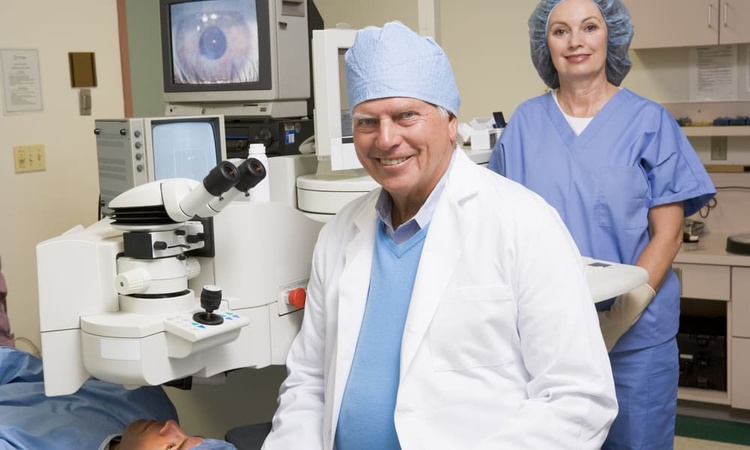Hospital Jobs in Japan: Opportunities for Healthcare Professionals
Japan's healthcare system is renowned for its efficiency and high-quality care. As the country faces an aging population and increasing demand for medical services, opportunities for foreign healthcare professionals to work in Japanese hospitals are growing. This article explores the landscape of hospital jobs in Japan, including roles for doctors and nurses, requirements, and cultural considerations.

-
Medical technologists: Professionals working in laboratory settings, radiology, and other diagnostic areas.
-
Physical therapists and occupational therapists: Specialists in rehabilitation and patient mobility.
-
Administrative staff: Roles in hospital management, patient coordination, and medical records.
Foreign healthcare professionals typically find opportunities in larger urban hospitals or international clinics that cater to expatriate communities.
What are the requirements for working in Japanese hospitals?
Working as a healthcare professional in Japan requires meeting specific criteria:
-
Medical qualifications: A degree from an accredited medical school or nursing program is essential.
-
Language proficiency: Most hospitals require a high level of Japanese language skills, particularly for patient-facing roles.
-
Licensing: Foreign healthcare professionals must obtain Japanese medical licenses, which often involves passing rigorous exams in Japanese.
-
Visa requirements: A proper work visa, typically sponsored by the employing hospital, is necessary.
-
Cultural competence: Understanding Japanese medical practices and cultural norms is crucial for successful integration.
For doctors, the process of obtaining a Japanese medical license can be particularly challenging, often requiring years of preparation and study.
How does the Japanese healthcare system differ from others?
The Japanese healthcare system has several unique characteristics:
-
Universal health coverage: All residents, including foreign nationals with long-term visas, are required to enroll in public health insurance.
-
High-tech facilities: Japanese hospitals are known for their advanced medical technology and equipment.
-
Preventive care focus: Regular health check-ups and screenings are emphasized.
-
Long working hours: Healthcare professionals in Japan often work longer hours compared to their counterparts in other countries.
-
Hierarchical structure: The medical profession in Japan has a strong hierarchical system, which foreign professionals must navigate.
Understanding these differences is essential for healthcare professionals considering a career in Japanese hospitals.
What are the challenges for foreign healthcare workers in Japan?
Foreign healthcare professionals face several challenges when working in Japanese hospitals:
-
Language barrier: Mastering medical Japanese is crucial for effective communication with patients and colleagues.
-
Cultural differences: Adapting to Japanese work culture and patient expectations can be challenging.
-
Licensing process: Obtaining a Japanese medical license is often a lengthy and difficult process for foreign professionals.
-
Work-life balance: Long working hours and dedication to the job can impact personal life.
-
Limited career advancement: Foreign professionals may face limitations in career progression compared to their Japanese counterparts.
Despite these challenges, many foreign healthcare workers find their experience in Japan rewarding and enriching.
What are the benefits of working in Japanese hospitals?
Working in Japanese hospitals offers several advantages for healthcare professionals:
-
Exposure to cutting-edge medical technology and practices
-
Opportunity to work in a highly efficient and well-organized healthcare system
-
Competitive salaries, especially in urban areas
-
Chance to immerse in Japanese culture and language
-
Potential for research collaborations and professional development
-
Experience in dealing with an aging population, which is relevant to many developed countries
These benefits make Japan an attractive destination for healthcare professionals seeking international experience.
What is the salary range for hospital jobs in Japan?
Salaries for healthcare professionals in Japanese hospitals vary depending on factors such as experience, specialization, and location. Here’s a general overview of salary ranges for different roles:
| Position | Experience Level | Annual Salary Range (JPY) |
|---|---|---|
| Doctor | Entry-level | 6,000,000 - 8,000,000 |
| Experienced | 10,000,000 - 20,000,000+ | |
| Nurse | Entry-level | 3,000,000 - 4,000,000 |
| Experienced | 5,000,000 - 7,000,000 | |
| Medical Technologist | Mid-career | 4,000,000 - 6,000,000 |
Prices, rates, or cost estimates mentioned in this article are based on the latest available information but may change over time. Independent research is advised before making financial decisions.
It’s important to note that while these figures provide a general idea, actual salaries can vary significantly based on the specific hospital, location (urban vs. rural), and individual qualifications.
In conclusion, hospital jobs in Japan offer unique opportunities for healthcare professionals seeking international experience. While challenges exist, particularly in terms of language and cultural adaptation, the rewards of working in a highly advanced healthcare system can be significant. For those willing to invest the time and effort to navigate the requirements, a career in Japanese hospitals can be both professionally and personally enriching.






